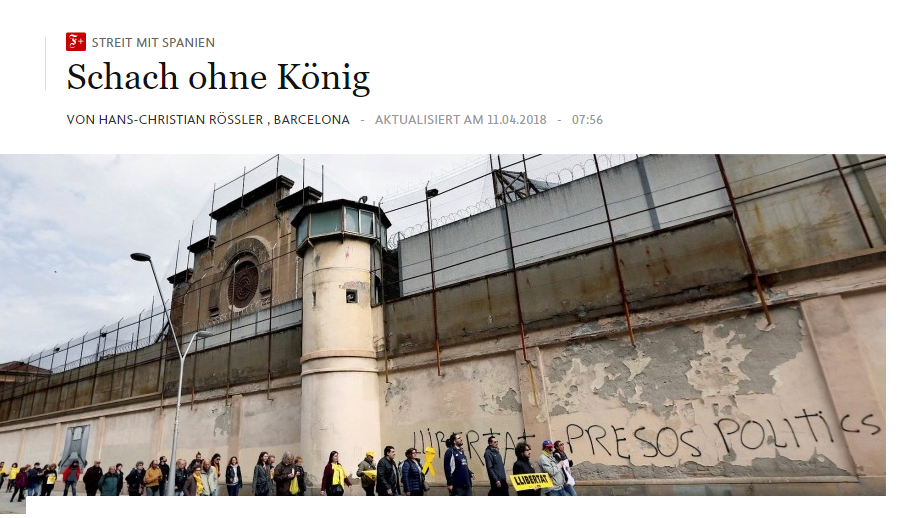The accusations of violence against the Catalan Committees for Defence of the Republic (CDR) are part of a new attempt by the Spanish government to achieve president Carles Puigdemont's extradition, according to Frankfurter Allgemeine Zeitung (in German, paywall), the most-influential German newspaper. The CDR have become a geostrategic pawn after the decision by a Schleswig-Holstein court to release Puigdemont on bail and not accept the charge of rebellion, with doubts also being sounded over the charge of misuse of public funds.
"Representatives of the [Spanish] authorities warn of "growing aggressiveness" and, since the beginning of April, are mobilising additional officials: to prevent "intimidation, coercion and property damage" - and, to be ready for protests, Germany should extradite Puigdemont to Spain," they report.
The Frankfurter Allgemeine Zeitung, which is opposed to Catalan independence but supports a de-escalation of the conflict, believes that, with this new context of greater tension and more political repression, the situation in Catalonia is "getting worse".
The newspaper explains what the CDR are, describes a protest in front of Barcelona's Model prison this weekend and quotes conversations with journalists, political experts and CDR members. It says they have grown in recent weeks following president Carles Puigdemont's arrest in Germany.
They also report on the arrests that took place this Tuesday, the first of CDR members, including Tamara Carrasco, who is in custody facing accusations of "terrorism": "with the arrest on Tuesday, Spanish judicial authorities now make a previous announcement true: like Puigdemont, now the activists, who are suspected of violence, should also be investigated for rebellion. After the arrest and the flight of the separatist leadership, the all-together around 300 CDRs are in the sights of police and politicians in Madrid - as if they were the biggest danger for the state."


